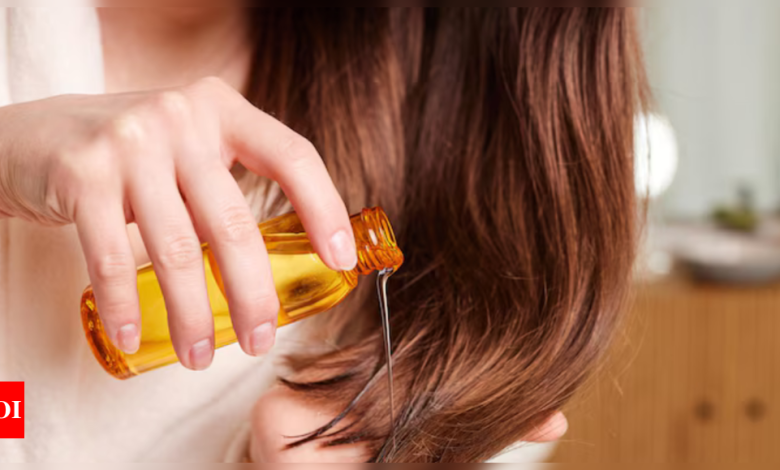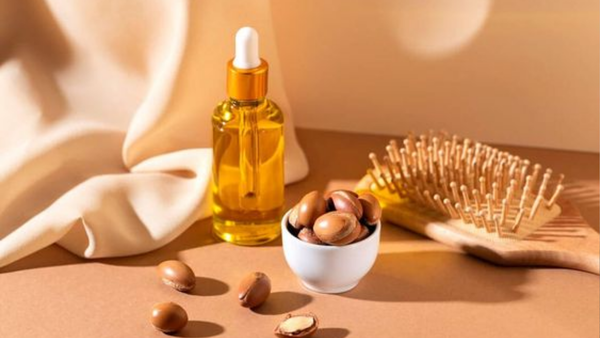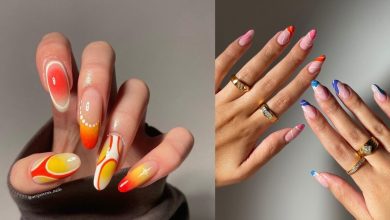Is hair oil causing your hair loss? Common mistakes you need to stop making

Hair oiling has been touted as a ritualistic treatment since times immemorial for lush, healthy hair. Be it the Ayurvedic times or the present beauty regimen, the application of hair oil is deeply seated in culture for nourishment and protection of hair. Nevertheless, some individuals struggle to combat hair loss with regular oil applications despite its good reputation.This paradox can arise with a few common mistakes regarding the oiling process. Understanding some of those pitfalls and how to avoid them can ensure hair oil works the way it is supposed to without causing all that unnecessary damage.
Argan oil is a highly nourishing oil commonly used in hair care and cosmetic products. Extracted from the cold-pressed, unroasted kernels of the Moroccan argan tree, this oil is renowned for its exceptional benefits for hair. Rich in fatty acids, vitamin E, and antioxidants, argan oil deeply moisturises and nourishes hair follicles, promoting hair growth, enhancing shine, and making hair easier to manage.
Using the wrong type of oil
Perhaps the most basic mistake is choosing the wrong type of oil that does not suit your hair type or scalp condition. Hair oil inventions come in different formulations, each suited for different needs. For example, coconut oil is usually the most deeply absorbed into hair to moisturize even the driest of hair and is often too rich for fine or oily hair. It may cause buildup, especially in those who are prone to hair loss. In such instances, lighter oils, such as argan or jojoba oil, would be better fitted. It is essential to use oil in hair in accordance with your requirement. In case of any confusion, the best option of oil for your hair type is supposed to be suggested after consulting with a dermatologist or even a hair care expert.
Over-oiling your hair
Yes, hair oiling is indeed good but excessive use can invite problem. Over-oiling leads to a greasy buildup that may block hair follicles and affect scalp health adversely. This can breed a fungus and the onset of dandruff, which exacerbates hair loss. A moderate amount will work, applied sparingly, as a rule. Most people find that once a week or every fortnight is ample. Again, ensure you are spreading it evenly, so there will not be a point where it becomes thick.
Incorrect application technique
How you apply your hair oil is just as important as how much you apply. Application directly onto an unclean scalp will tend to block it with dirt and grime. If the scalp is filthy, there’s a tendency that applying oil directly to it will clog it with filth and dirt. It will result in scalp problems and may even cause loss of hair. For application on the scalp, apply only on a clean scalp, ensuring proper absorption. Massage your scalp very gently with your fingertips only in circular motions, since that encourages blood flow while allowing the oil to seep into your hair follicles. Do not use excessive force. It may lead to hair breaking.
Insufficient washing of the oil
When the oil is not washed for a too long period, without being properly cleaned from the head, it may result in greasiness and scalp problems. One should clean the oil well with a mild sulfate-free shampoo. If some of the oils are left behind, the pores get blocked leading to scalp irritation and falling of hair. While washing out the oil, use lukewarm water, which will not strip your hair of its natural moisture. Ensure that your hair is rid of all the oil applied. Follow it up with a conditioner in order to maintain hydration and avoid dryness.
Incorrect application of hot oil treatments
Hot oil treatments are very much going to amplify the efficiency of hair oiling through ways of improving oil penetration. On the other hand, very hot oil might burn the scalp or be damaging to the hair. Apply a warm, not scalding temperature, because hot oil should never be applied directly to the scalp. You should let it settle down to a certain level before applying gentle massages. Applications of hot oil should be done sparingly since too much heat may weaken the strands and will surely cause damage to them.
Disregard for allergic action and sensitivity: Certain people may be allergic or sensitive to some hair oils or their constituents. If itching, redness, or any discomfort is felt just after applying oil, it can be an allergic reaction; therefore, always do a patch test prior to the extensive use of a particular oil. Apply a small amount to a concealed area of your body and, over the course of 24 hours, check for a reaction. If some form of anomaly occurs, discontinue use immediately and continue testing other oils while considering your skin and scalp sensitivity.
Use of expired or low-quality oils
The quality of the oil may vary in effectiveness. Oils which have expired or have not been kept well may lose their beneficial properties and even harbor harmful bacteria. Always make it a point to check out the expiration date, and that the oil is stored in a cool, dark area so the quality is preserved. Choose only high-quality pure oils from reputable brands which are guaranteed to provide maximum benefits without causing adverse effects.
Failure to keep a balanced hair care habit
It brings about imbalances, especially when one relies solely on hair oil and disregards other facets of hair care. One must have an all-rounded hair care routine: frequent washing of hair, conditioning, and proper hydration. Undue oiling devoid of good cleansing may cause scalp problems and loss of hair. Supplement this with a good diet that also includes adequate hydration and other hair-friendly practices that will go a long way in ensuring overall hair health.
How stress can impact skin and hair
If hair oiling is done correctly, it may prove to be very effective in the care of hair. One may avail the benefits of hair oil without being at the receiving end of its adverse side effects like hair loss, simply by avoiding the prevalent mistakes mentioned above-right oil, proper application, thorough washing, and general hair health care. Remember, for hair to be healthy, it is all about finding the balance and doing things in moderation. With such attention to detail, beautiful, vibrant hair, which you want so badly, will be yours.
Source: times of india
Related Posts
- 12 Coconut Perfumes That Smell Like an Expensive Vacation (and Not Sunscreen)
- The 6 Hats Everyone Will Be Wearing Instead of Bucket Hats This Summer
- Thanks to Taylor Swift, Glitter Freckles Have Been Trending Since October—How to Pull Them Off Like a Celeb
- Stylish Women in L.A., London, and Lisbon Agree: This Is How to Wear Sandals With Trousers in 2025
- Chia Seeds for hair growth: 5 ways to use Chia Seeds for hair growth





